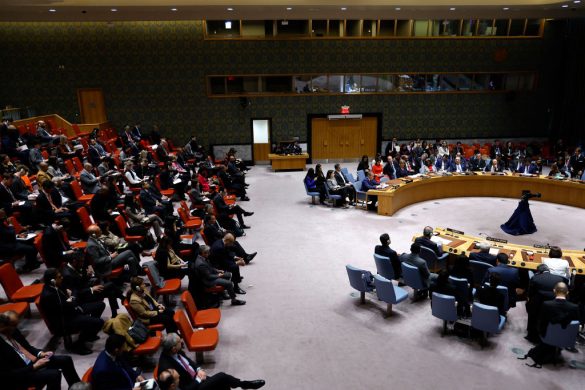Det fremgår af en pressemeddelse fra 8 Minutes, et indisk solenergiselskab.
LUCKNOW, February 7, 2017: Ambar Mosque, marking its 20th anniversary since its inception in February 1997 and started by Shaista Ambar in defiance against patriarchy, will now run on solar energy.
The mosque has played a unique role, to facilitate a dialogue within the community on women rights. With installation of solar panels on the roof, the mosque will not only feed electricity back into the grid but also help improve the air quality by reducing its carbon footprint.
Ait quality has become worse
In giving a public message on why the mosque has installed solar panels today, Shaista Amber said,
“Over the last few years, air quality in the city has become worse while rural areas of Uttar Pradesh have been suffering frequent power cuts. We all are to be blamed for it and we must all do our bit to improve the air quality and access to electricity".
"Everybody should have access to clean air and clean electricity. Electricity produced from solar energy does not cause air pollution like coal power plants do. If everyone starts using solar energy then Lucknow’s air quality will start to improve as well as reduce power cuts”.
India’s energy capital, Singrauli, is situated about 500 kilometers from Lucknow and has about 20GW of coal based power capacity.
The concentration of coal mines and coal fired thermal power plants in the area has led to an increased level of air pollution all along the Indo-Gangetic plain.
Efforts to reduce such rampant pollution by positive individual measures can send a cumulative message of change nationally as well as across the world.
High demand for solar energy
According to a recent survey conducted by IndiaSpend and Fourth Lion, the demand for solar energy in UP is significantly high.
The survey reported that 87 percent of voters in Uttar Pradesh would opt for solar energy if it helps improve air quality and reduce pollution.
The survey also brought out that power cuts remain the single biggest problem concerning both urban and rural voters. 38% of UP voters’ face power cuts every day and 54% of UP voters’ face power cuts every week, including 58% of women, 59% of rural voters and 61% of Dalits.
A report prepared by Equitorials, a financial analysis firm, highlights that UP has a target of installing 1.8GW of solar power by March 2017. In comparison, the state has added 239MW capacity – a mere 13.1% of the target.
While there is 271MW of additional solar power capacity that is expected to come on stream over January 2017 to March 2017; even with that capacity addition, the overall installed capacity would only reach 510MW, which is about 28% of the target.
“UP is also one of the states that are expected to be power deficit in 2016/17 by the Central Electricity Authority. There is a clear need to significantly increase the rate of solar power capacity addition for the state to meet its power requirements, as well as the renewable power capacity targets” said Jai Sharda, Managing Partner, Equitorials.
Has started taking action
Of the overall target, ground mounted solar capacity target for March 2017 is 1290MW. Of that UP is expected to install only 410MW of capacity.
The problem is even more acute in the rooftop solar domain. Of the 538MW target, UP is expected to commission only 100MW by March 2017, missing its target by over 80%.
“Communities in Lucknow have started taking actions to address the issue of air pollution and power cuts. Leaders from various faiths such as Diviya Giri Mahant of Mankameshwar Mandir and Rajinder Singh Bagga president of Gurudwara’s Pastor David and Buddhist priest Bhante Pragya Nandfrom have all called for talking up renewable energy to help save the environment" concluded Shaista Ambar.
Speaking on the occasion, Arjun Srihari, Head of Marketing & Partnerships at 8minutes said,
"This rooftop Solar project is a great example of how every community can benefit from solar. The entire process of taking either your home or your business Solar is extremely quick & simple, and will result in significant financial benefit in terms of the savings on your electricity expenditure".
"We commend Ms. Shaista Ambar for all the great work she does for the community and the shining example she sets everyday! We hope this great initiative being undertaken by Ms. Ambar will be replicated by various other faith leaders, as it is a notable step being taken towards fighting air pollution and global warming."















